For over 100 years students have graduated in our iconic Whitworth Hall. But this fascinating building has some slightly unusual history too. Read on to find out more.
Graduating this winter? Here are 10 things you might not know about the Whitworth Hall #UoMGraduation Share on X
Einstein gave his first lecture in the UK at the Whitworth Hall #UoMGraduation Share on X
The architect behind Whitworth Hall also designed the Natural History Museum in London #UoMGraduation Share on X
Built over 100 years ago, the Whitworth Hall has hosted Nobel Prize winners, members of the royal family, and featured multiple times on TV. Here are 10 things you might not know about one of our favourite buildings on campus.
1. The Whitworth Hall was most likely the site of Albert Einstein’s first ever lecture in the UK.

In his first public appearance in the UK, Albert Einstein visited the University and gave a lecture on his theory of relativity. We also awarded him an honorary doctorate. The location of this lecture isn’t recorded anywhere but it’s extremely likely that it took place in Whitworth Hall.
University historian Dr James Sumner said: “A lecture in Britain by Einstein, already in 1921 the most famous representative of German-speaking science, was an important step in mending scientific relations that had broken down in the First World War. Bringing the lecture to Manchester was a huge symbolic success for the city and it’s University.”
2. The Whitworth Hall was named after Sir Joseph Whitworth, who left the equivalent of £55 million in his Will for causes dear to him.
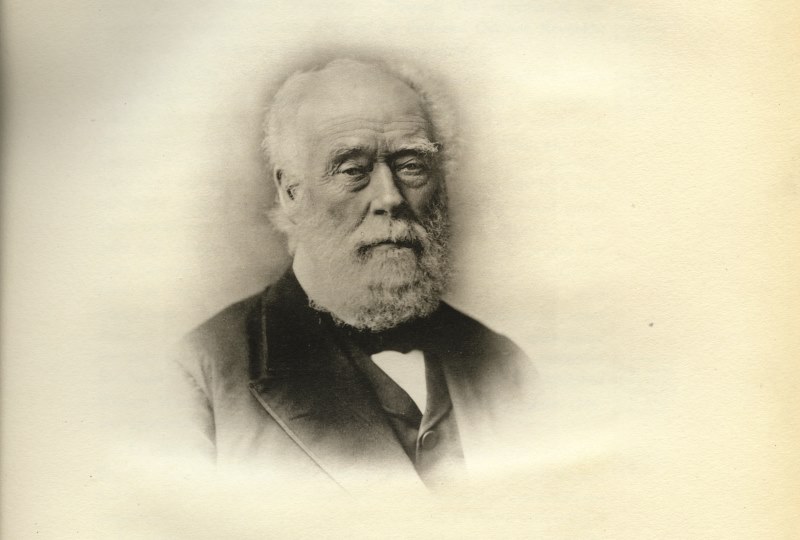
Sir Joseph Whitworth was a brilliant and successful engineer. One of his most noted achievements was devising the first standardised system for screw threads which became the British Standard, hence the name the “British Standard Whitworth” (BSW). The BSW proved to be a significant invention, adopted by British railway lines and British manufacturing.
Among his designs was the ‘Whitworth bolt,’ which featured in the Disney Pixar movie Cars 2 (2011) as an important clue that leads to the discovery of the film’s villain, Sir Miles Axelrod.
Sir Joseph’s Will was also spent on a national system of engineering scholarships, a new technical college on Sackville Street and securing land on Oxford Road for teaching hospitals.
In his name and using his legacy, Sir Joseph’s trustees also created the Whitworth Art Gallery and Whitworth Park.
3. In 1907 a debate over women’s suffrage took place in the Whitworth Hall.

The Women’s and Men’s student unions (which were separate for 67 years) debated over what was a divisive and controversial topic: women’s suffrage. A newspaper article details how young men sat at the back of the hall, hoping to have fun by jeering at some of the speakers who were arguing for women’s right to vote: “The students at the back listened to the first speech in comparative quiet, but they became vociferous when Miss Esther Roper rose to oppose the resolution.”
Miss Roper, who argued for giving women the right to vote, responded to such a reaction by saying: “I am sorry gentlemen, but the facts are against you.”
4. The Queen visited Whitworth Hall on Friday 22 October 2004.
The Queen attended a ceremony at the Whitworth Hall to mark the merger between The Victoria University of Manchester and the University of Manchester Institute of Science and Technology (UMIST). It then became The University of Manchester we know today.
After bestowing the Royal Charter upon the University, the Queen said: “In creating this new institution you are building on a rich academic heritage and a fine tradition of excellence in both teaching and research… The presentation of this charter is the beginning of an exhilarating journey.”
5. The Whitworth Hall was the venue for Ernest Rutherford’s Nobel Prize celebration dinner in 1909.
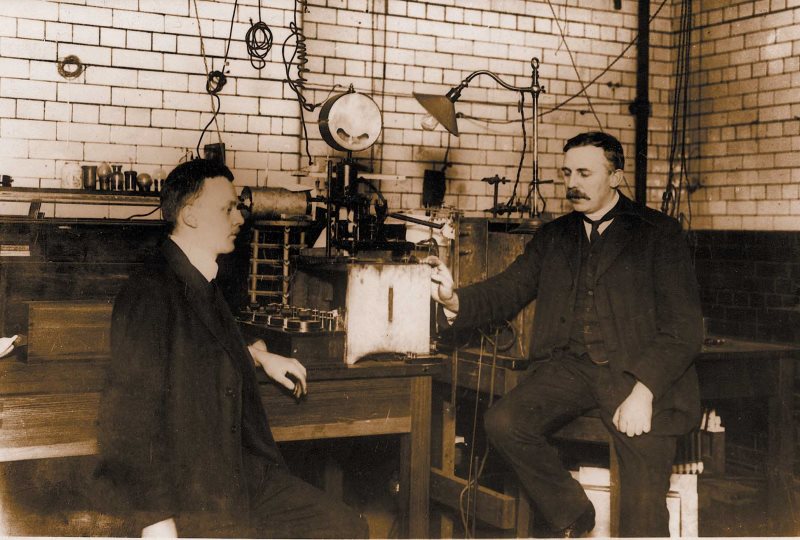
Ernest Rutherford, famous for being the first person to split the atom, took up the Langworthy Chair of Experimental Physics at what was then the Victoria University of Manchester. In 1909 he was awarded the Nobel Prize for Chemistry, and held his celebration dinner in the Whitworth Hall.
6. The architect of the Whitworth Hall also designed London’s Natural History Museum and Manchester Town Hall.
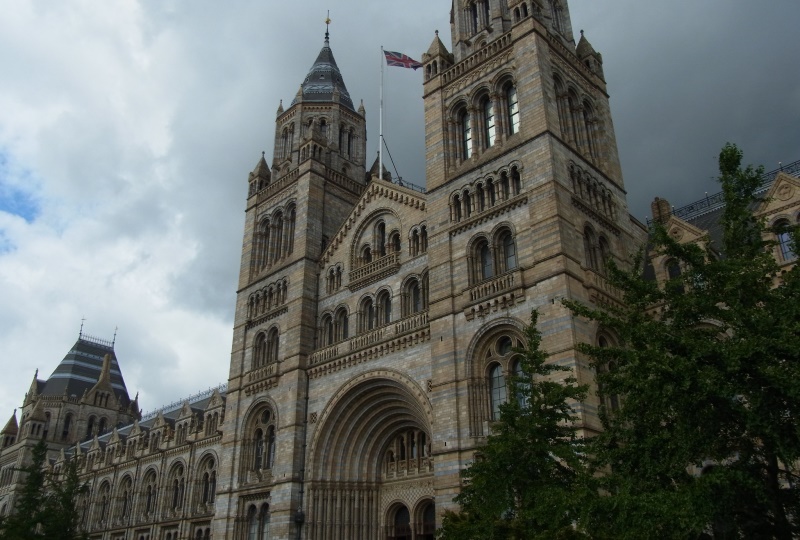
Alfred Waterhouse, one of Britain’s best-known architects, also designed the Natural History Museum, the stunning Manchester Town Hall and the other buildings in the University’s quadrangle. Although the building was designed by Alfred, it was left to his son Paul to oversee the final build.
7. The Whitworth Hall has been the venue for well-known BBC shows including Question Time and Mastermind.
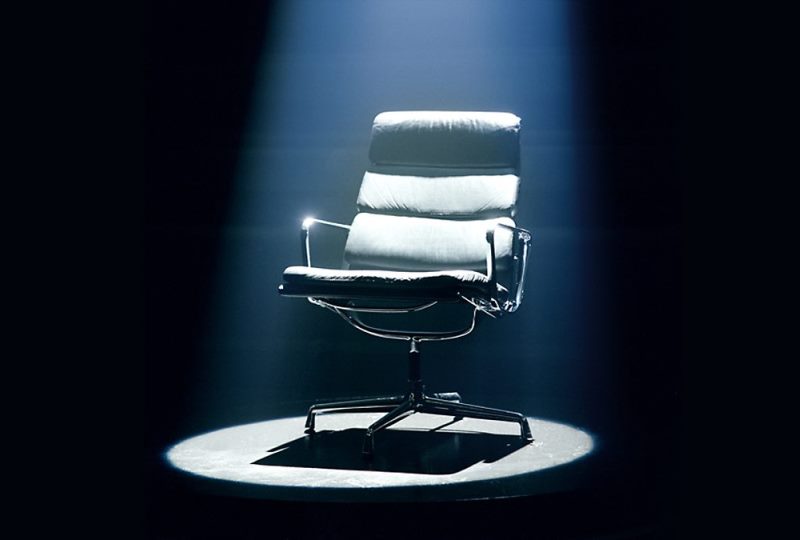
8. The Animals frontman Eric Burdon played the first ever gig at Whitworth Hall in 1967 with his experimental jazz band The New Jazz Orchestra.
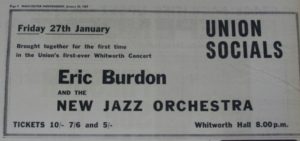
Most famous for their rendition of the song ‘House of the Rising Sun,’ The Animals were a popular band in the 1960s, accumulating 10 Top 20 hits in the UK Singles Chart and the US Billboard Hot 100.
9. You can get married or have a civil partnership ceremony at the Whitworth Hall
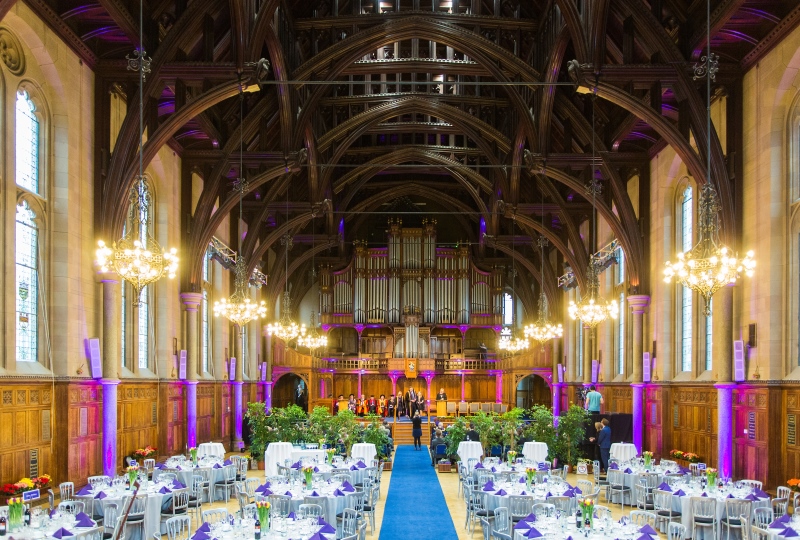
10. Whitworth Hall was occupied in a student protest in late February to early March 1970
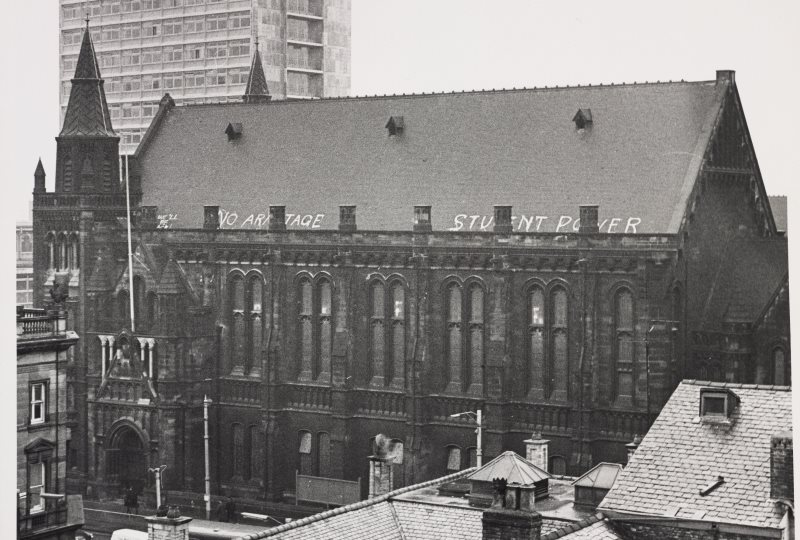
Events that led to the occupation were triggered by students’ concerns that the University were keeping files on their political views. Students were further riled after the Vice-Chancellor used injunctions at the Student’s Union. This was intended to prevent certain students from the Socialist Society from encouraging other students to trespass by breaking into the University’s files.
The President of the National Union of Students (NUS), Jack Straw (who went on to become Secretary of State for Foreign and Commonwealth Affairs) called the Vice-Chancellor’s actions the greatest denial of free speech he had ever seen.
During the sit-in, the drama group Occupational Hazard provided entertainment for the protesters. Their performances were thoroughly enjoyed, so much so that the occupation was extended by a day in order for the students to watch the last episode of a soap opera.
.
.
As we celebrate Joseph Whitworth’s contribution to our University, we’re also grateful to the many alumni and friends who choose to make their own gifts to support students today. Together, their gifts ensure that bright people can succeed here at Manchester, no matter where they come from.


It is really very informative and wonderful to know all these facts..
Interesting piece thank you. When I was a research student 1958,9 I shared a room on the ground floor under the hall. A nice place to work ! Also graduated there of course.
Is it true that there is a secret restaurant behind the organ in whitworth hall?
I remember the student sit in well – I was there! Dame Sally Davies just mentioned it on Desert Island Discs.